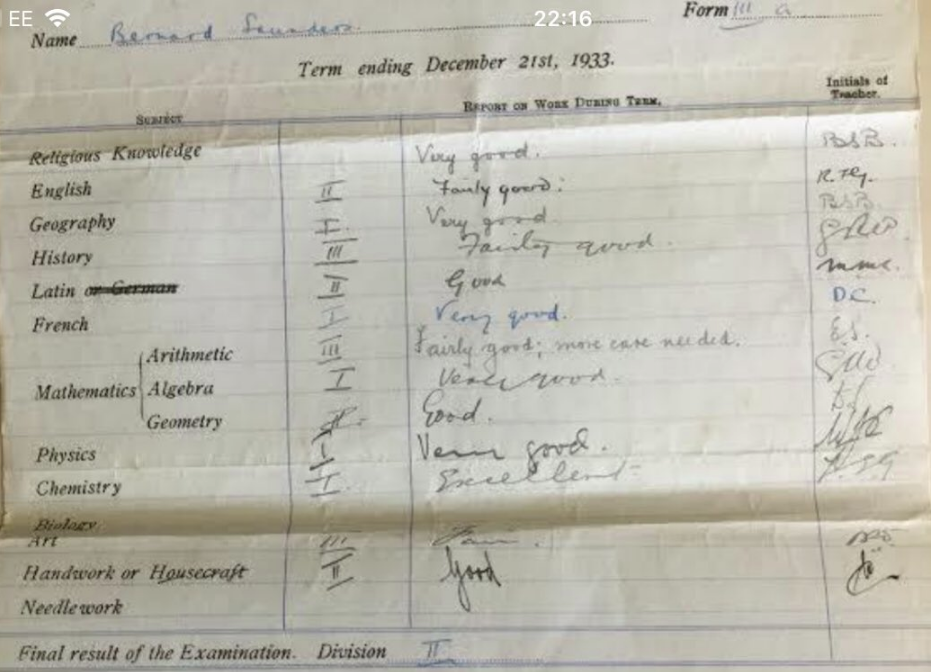The longest TOT in a while!
T1 was a really interesting piece. I know that at times it's easy to get in a rut with a class when things haven't gone so well for a couple of weeks or so. I think that a big part of getting out of that rut is to be able to change the way that we're thinking about them (easier said than done sometimes!). This post offers practical advice on how to re-frame our view of a challenging class!
T2 is an important resource to help teachers, students, and parents to navigate the challenging issue of youth suicide, especially if it's been raised by the Netflix series '13 Reasons Why'.
One of my other favourite pieces this week was T3 by Harry Fletcher-Wood, in which he discusses, amongst other things, how he changed the default regarding students receiving marks. What if it wasn't assumed that students would receive their marks at all until they can articulate what exactly they need to do to improve next time??? Creative thinking, as per usual, from Harry.
T4 is helpful if you're being crushed under the pressure of graded observations, this thread highlights some key research on how unreliable such observations are! And T6 (also by @mathsmrgordon) is on what formative assessment for teachers could look like.
T7 and T8 are two Aussie Ed podcast episodes well worth listening to.
And I'll let the following titles speak for themselves.
Enjoy : )
(all past TOTs here), sign up to get these articles emailed to you each week here.
Some ideas to help us re-frame how we're seeing a challenging class
Some great ideas here on how to reframe your views on a class you've been finding challenging. https://t.co/ddG9kJMOlw pic.twitter.com/et94zUjAnb
— Oliver Lovell (@ollie_lovell) May 26, 2018
Resources to support teachers, students, and parents to process Netflix series '13 reasons why', via @headspace_aus
A resource to support discussions with young people about Netflix series '13 reasons why', which deals with suicide. https://t.co/RUCun3u1mN pic.twitter.com/ehN179R20L
— Oliver Lovell (@ollie_lovell) May 31, 2018
On changing the default and opt out vs. opt in, via @HFletcherWood
On changing the default. Good reading, as per usual. From @HFletcherWood https://t.co/obbn14Hji0 pic.twitter.com/wsIS3TB8Jd
— Oliver Lovell (@ollie_lovell) May 29, 2018
Great collection of quotes and facts on the unreliability of current approaches to assessing teachers, via @mathsmrgordon
!THREAD! https://t.co/7sHzlaq0E5
— Oliver Lovell (@ollie_lovell) May 29, 2018
What could formative assessment look like if applied to teacher performance? via @mathsmrgordon
Formative assessment applied to teacher performance: A great thread on some feedback processes that can support teacher improvement! https://t.co/EO1sCg7h2Y
— Oliver Lovell (@ollie_lovell) May 30, 2018
Four different perspectives on Gonski 2.0, via @TERPodcast
I really like how @TERPodcast approached their coverage of Gonski 2.0. Chatting to 4 different speakers in the space gave a great overview of the different takes on the report. Well worth checking out! https://t.co/b0dUh7nd5p pic.twitter.com/D7KHNRr0st
— Oliver Lovell (@ollie_lovell) May 27, 2018
Reducing suspension rates through personalised learning plans, via @EduChangemakers
Highly recommend the @EduChangemakers podcast with @MaddyScottJones and Cally Nielsen. It's on Bundaberg State HSs approach to supporting the growth and engagement of disengaged pupils. Significantly reduced their suspension rates. Draws on @EdRev ‘s work https://t.co/Z6kld3MS3k
— Oliver Lovell (@ollie_lovell) May 27, 2018
Can we even measure pupil progress? via @profbeckyallen
Some interesting thoughts on whether or not we can measure pupil progress. I particularly liked this bit. Via @profbeckyallen https://t.co/lzlO7AthHR pic.twitter.com/vDC8fAuBDW
— Oliver Lovell (@ollie_lovell) May 26, 2018
An interesting opinion piece on the the ‘Reading Recovery' program, phonics, and more
Another commentary on the language wars. This one is from the perspective of someone from New Zealande/Aotearoa. Suggests that new research finds that reading recovery doesn't help students who are most in need. https://t.co/gMokNauKZc
— Oliver Lovell (@ollie_lovell) May 26, 2018
A new cognitive construct (to me anyway), perceptual capacity, distinct from working memory
Distinct from intelligence or working memory, your “perceptual capacity” predicts how susceptible you are to inattentional blindness (or missing the gorilla in the room) https://t.co/5sL8TwZHS6 via @researchdigest pic.twitter.com/jBRgJq1bGL
— Oliver Lovell (@ollie_lovell) May 29, 2018
Just for fun: Photo of a student report from 1933, #reduceteacherworkload, via @apf102
Link to source tweet here.
Handy app to bulk un-subscribe from emails
This is a really handy blog about useful email tools. I just used https://t.co/f5QtisttIM to unsubscribe from a bunch of stuff. But ‘find big mail’ for deleting large emails in your inbox looks great too: https://t.co/57mxXjciXB
— Oliver Lovell (@ollie_lovell) May 29, 2018
